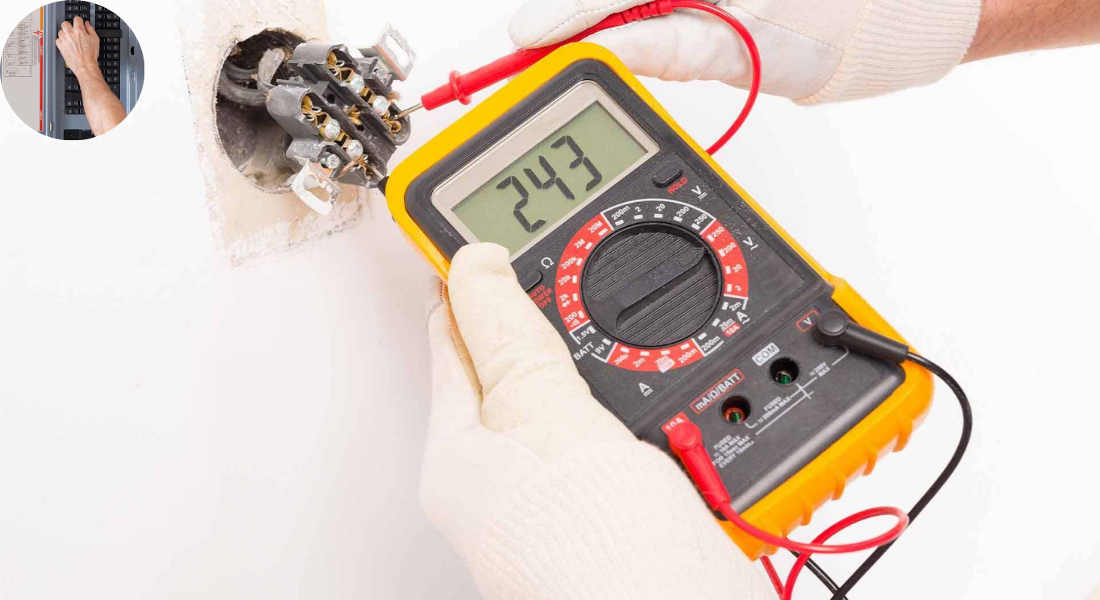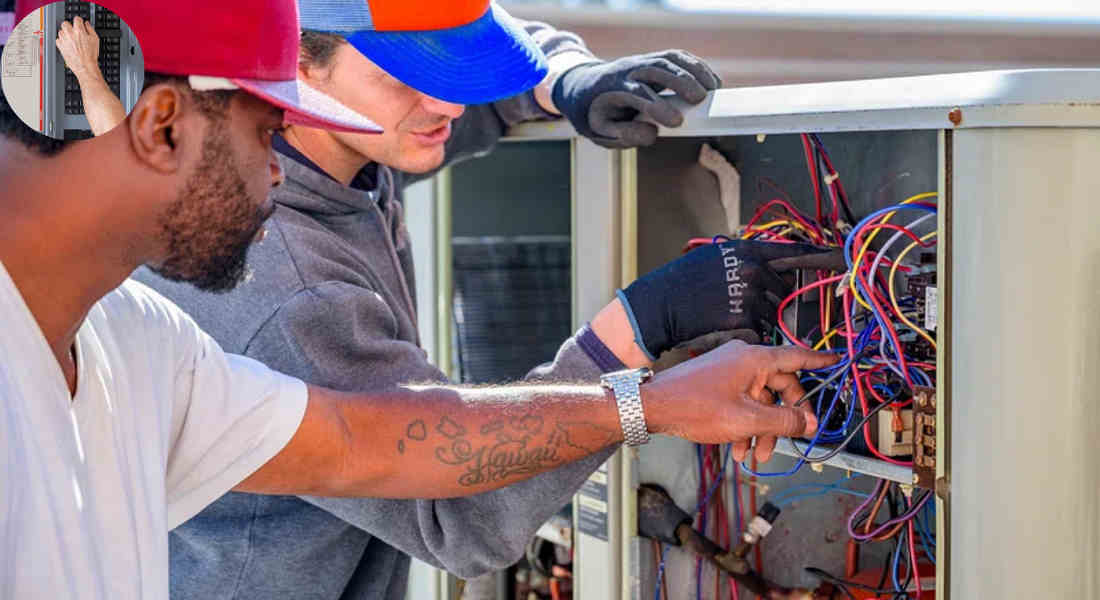Understanding when your home’s electrical system requires a complete rewire is essential for safety and efficiency. Outdated or faulty wiring can pose serious risks, including fire hazards and electrical failures. This guide will help you recognize the key warning signs—such as frequent circuit breaker trips, discolored outlets, burning smells, and flickering lights—so you can determine if it’s time to call a professional electrician and consider rewiring your house.
Signs That Your House Needs Rewiring
Flickering lights can be more than just an annoyance. If bulbs constantly dim or flicker, it might indicate faulty wiring or overloaded circuits.
If you find yourself resetting the breaker often, something could be amiss with the electrical system.
If you notice outlets that feel warm to the touch, that’s a warning sign. Overheating can lead to fires if not addressed promptly.
Outdated outlets and switches are also a concern. If you’re still using two-prong plugs in a modern world of three-prong devices, it’s time to reconsider your wiring needs.
An unusual burning smell should never be ignored. This could signify overheating wires and position in your home and your family’s safety.
Safety Precautions and Warning Signs
Safety should always be the top priority when dealing with electrical systems. One of the first warning signs to look for is frequent circuit breaker trips. If your breakers are constantly tripping, it may indicate that your wiring is overloaded or damaged.
This can suggest loose connections or issues within your electrical system. Don’t ignore these small disturbances; they could lead to larger problems later.
Burning smells and discolored outlets are also major red flags. These symptoms might point to overheating wires or faulty installations, which pose a serious fire risk.
If you notice any buzzing sounds from outlets or switches, take them seriously. This noise often indicates an underlying problem that requires immediate investigation by a professional electrician.
Staying vigilant about these warning signs helps ensure the safety of your home and loved ones against potential electrical hazards.
You may also read (can i plug my caravan into house mains safely).
Steps to Rewiring Your House
Rewiring your house is a significant task that requires careful planning. Start by assessing your current wiring system. Determine the age and condition of existing wires. It’s essential to identify any potential hazards.
Next, create a detailed plan for the rewiring project. Outline which areas need new wiring and what materials you’ll use.
Turn off the power before beginning any work. This step protects you from electric shocks and ensures your safety during installation.
Remove old wiring carefully. Label all connections as you go along, which will simplify reassembly later.
Install new electrical boxes as needed, ensuring they comply with local codes. Then, run new wires through walls and ceilings according to your layout.
Connect everything back up following proper protocols with safety and efficiency in mind. Testing each circuit ensures everything works correctly before turning the power back on.
Hiring a Professional vs DIY Approach
When considering rewiring your house, the decision between hiring a professional or doing it yourself can be daunting.
A licensed electrician brings expertise and experience. They understand local codes, ensuring safety and compliance with regulations. Their knowledge minimizes risks associated with electrical work.
On the other hand, a DIY approach can save money upfront. You might tackle small projects independently if you have basic skills and feel confident. However, improper wiring can lead to hazardous situations down the line.
Consider time as another factor. Professionals often complete tasks more efficiently than most homeowners could manage alone, which means reduced disruption in your daily life.
Before deciding, weigh your comfort level against potential complications from mishaps during installation. Choosing wisely based on skill level and safety concerns is crucial.
You may also read (navigating home purchases spouse buying alone in texas).
Cost of Rewiring and Potential Savings
Rewiring your house can initially seem daunting, but understanding the costs and potential savings can help you make an informed decision. The average cost to rewire a home typically ranges from $6,000 to $15,000 depending on various factors, such as the size of your home, local labor rates, and whether any major renovations are needed alongside the rewiring.
Despite this upfront expense, consider it an investment in your property’s safety and value. An updated electrical system reduces fire hazard risks and increases appeal for prospective buyers if you’re considering selling. A well-wired home is more attractive because it assures buyers they won’t have to face costly repairs shortly.
Enhanced energy efficiency might also result in decreased utility bills. So, while budgeting for rewiring may seem overwhelming at first glance, it’s beneficial both short-term and long-term.
By assessing these aspects carefully—alongside determining whether you need to rewire your house before selling—you’ll be better prepared to make a decision that enhances safety and boosts property value simultaneously.
You may also read (mastering downspout drainage a homeowners guide).

